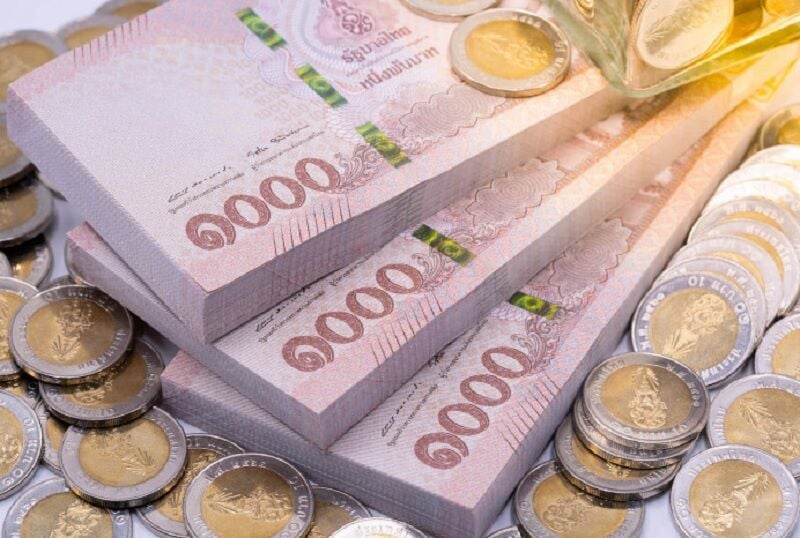Thailand disburses 3.48 trillion baht budget to boost economy

An injection of 3.48 trillion baht from the 2024 fiscal budget has finally been disbursed in the second quarter of this year, following delays that began on October 1 last year due to political setbacks after the General Election in May 2023.
With economic growth stagnating, public expenditure is seen as a crucial factor to revive subdued private spending and consumption. The government’s handling of this fresh fiscal budget, especially its key projects like the digital wallet scheme, has been under scrutiny. There are high expectations for effective stimulus measures given the limited time frame remaining.
The Director-General of the Comptroller General’s Department, Patricia Mongkhonvanit, reported that by the end of June, procurement contracts for the 2024 fiscal budget were completed, covering 57.8% of the total investment budget or equivalent to 417 billion baht. Disbursement according to these contracts reached 37% of the total investment expenditure, amounting to 265 billion baht.
The total investment budget for the government in the 2024 fiscal year is 723 billion baht. The government aims to disburse at least 70% of this by the end of September to support the economy, said Mongkhonvanit.
“The Finance Ministry has implemented measures to expedite the disbursement of the 2024 fiscal budget.”
Government agencies must accelerate the delivery of projects to ensure budget disbursement by September for single-year investments. Contracts for multi-year projects or new investments requiring budget carryover must be signed by May 2024.
Bidding process
To expedite the bidding process, the duration of government procurement processes has been reduced. For amounts exceeding 500,000 baht but no more than 100 million baht, documents must be published for at least three days. For amounts exceeding 100 million baht, the period is at least 20 days. Additionally, clearer details regarding the appeals process for government procurement have been established to reduce delays.
Economist Athiphat Muthitacharoen from Chulalongkorn University raised concerns regarding the digital wallet scheme, warning that without strict spending conditions, funds could end up with large-scale businesses or even leak abroad. He proposed setting a maximum daily spending limit, such as 500 baht per day, to distribute spending more effectively among small local businesses.
Muthitacharoen added setting a daily spending limit would help reduce potential leakage issues, such as spending on imported goods.
A senior economic researcher at the Thailand Development Research Institute, Nonarit Bisonyabut, suggested smaller projects worth 20-30 billion baht, like state welfare cards or co-pay projects, instead of large-scale economic stimulus like the digital wallet scheme. He acknowledged the importance of the digital wallet project in supporting the Thai economy, especially as the global economy recovers and monetary policies ease in developed countries.
Thienprasit Chaiyapatranun, president of the Thai Hotels Association, expressed scepticism that the disbursement of the 2024 budget would fully boost the tourism industry. He mentioned that tax reduction schemes for individual trips to second-tier cities would not quickly influence travel decisions as tax deductions would only occur during the tax filing period early next year.
People don’t have deep pockets for travel, Chaiyapatranun said, suggesting a revival of subsidy programmes focusing on second-tier cities or three-star hotels and below. He noted that many small hotels and homestay properties are not enrolled in the e-tax system, limiting current schemes to a certain number of operators.
Government spending
The Deputy Managing Director of Kasikorn Research Center (K-Research), Nattaporn Triratanasirikul, emphasised the importance of accelerating government spending as a growth engine for the Thai economy in the second half of 2024.
Triratanasirikul said that disbursement must be twice the pace of that seen in the past few months during the remaining three months of the current fiscal year.
The senior vice president of KGI Securities (Thailand), Rakpong Chaisuparakul, noted that solid public spending could support second-quarter GDP growth of around 2.5% year-on-year, significantly higher than the first-quarter growth of 1.5%.
The chairman of the Thai Chamber of Commerce (TCC), Sanan Angubolkul, said the government has been expediting state enterprises and local government organisations to accelerate spending. This should lead to clearer signs of economic recovery by September.
The Eastern Economic Corridor (EEC), covering parts of Chon Buri, Rayong, and Chachoengsao, is set to become Thailand’s high-tech industrial hub. The Industrial Estate Authority of Thailand (IEAT) will spend 620 million baht on developing the Smart Park Industrial Estate in Rayong in fiscal 2024, part of a larger 2.3 billion baht project expected to be completed by the end of 2024.
Thai government officials are distributing a new budget to support IEAT projects countrywide, said Veeris Ammarapala, governor of the IEAT, expressing confidence that the economy would not be seriously affected by the budget allocation delay.
Renewable power development
Sarat Prakobchart from the Energy Policy and Planning Office noted that part of the 2024 budget will support renewable power development.
People will begin to see new green power generation facilities in the second half of this year as Sarat stated, highlighting Thailand’s commitment to achieving carbon neutrality by 2050.
With these efforts, various sectors are expected to see a boost as the fiscal 2024 budget disbursement progresses, potentially leading to a more robust economic recovery in the coming months, reported Bangkok Post.
Latest Thailand News
Follow The Thaiger on Google News:


























